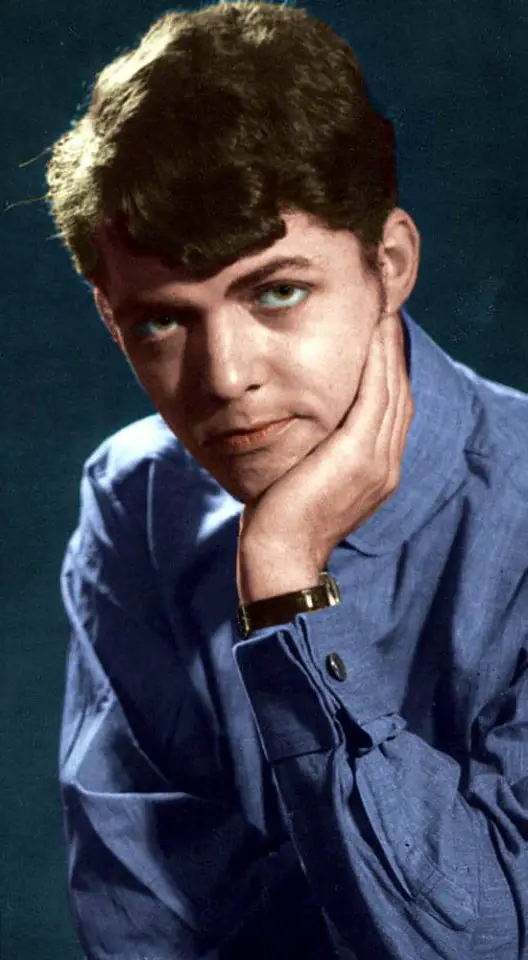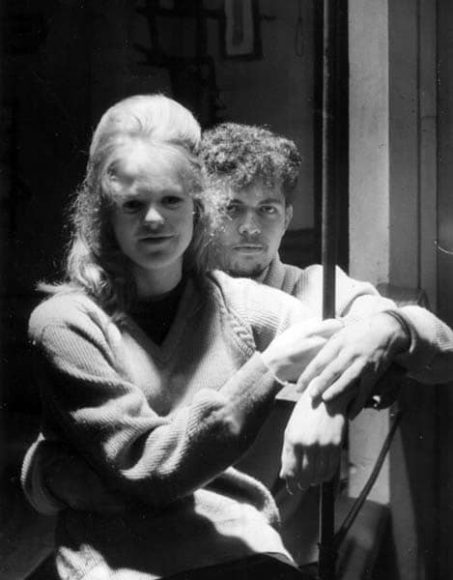Born in Liverpool, Bill Harry was the founder of Mersey Beat, the hugely influential local music newspaper which covered the city’s music scene in the early 1960s.
He started his first fanzine, Biped, as a member of the Liverpool Science Fiction Society. He later founded Premier, the first magazine of Liverpool’s Junior School of Art, after winning a scholarship to study there.
At the age of 16 Harry entered Liverpool College of Art where he founded a magazine called Jazz. He also worked on the Liverpool University charity magazine Pantosphinx, and for a magazine produced by the local music store Frank Hessy’s. The magazine, Frank Comments, gave Harry a flavour of the Liverpool music scene and inspired him to investigate further.
Harry also ran the studen union’s film society, where he showed such films as Jean Cocteau’s Orphee and Salvador Dali and Louis Bunel’s L’age D’or. At art college he became friends with Stuart Sutcliffe, who painted a portrait of Harry, one of the few he ever worked on. Harry also introduced Sutcliffe to another student at the college, John Lennon.
Attached to the College of Art was the Liverpool Institute, where Paul McCartney and George Harrison were students. The pair would often rehearse with Lennon in the college and played at Saturday night dances. Harry and Sutcliffe arranged for the student union to buy amplifiers for them to use. Eventually The Beatles took the equipment to Hamburg and it was never returned to the college.
Lennon and Harry often drank together in Liverpool. One day they were in Ye Cracke, a pub frequented by students at the college, when Harry persuaded Lennon to show him his poetry.
At first he demurred. It wasn’t the sort of hobby a ‘macho’ type would admit to. After I’d pressed him he then took some pages of notepaper out of his pocket and showed them to me. I was pleasantly surprised. I’d expected a pastiche of ‘Beat generation’ poetry, which was all the rage at the time. Yet this was a rustic poem, lusty and down to earth, completely English in its essence:Owl George ee be a farmer’s lad
With mucklekak and cow
Ee be the son of ‘is owl Dad
But why I don’t know howEe tak a fork and bale the hay
And stacking-stook he stock
And lived his loif from day to day
Dressed in a sweaty sockOne day maybe he marry be
To Nellie Nack the Lass
And we shall see what we shall see
A-f*****g in the grassOur Nellie be a gal so fine
All dimpled wart and blue
She herds the pigs, the rotten swine
It mak me wanna spew!Somehaps perchance ee’ll be a man
But now I will unfurl
Owl George is out of the frying pan
‘Cos ee’s a little girl.
One evening Harry, Lennon, Sutcliffe and fellow student Rod Murray saw a performance by beat poet Royston Ellis at Liverpool University. Afterwards Harry proposed that they form a collective, the Dissenters, which vowed to make Liverpool famous with their music, painting and writing.
Early in 1960 Harry met his future wife Virginia, who was then 16, at a Liverpool coffee bar called the Jacaranda. The Beatles also occasionally played at the venue. Harry had been planning to publish a jazz magazine called Storyville/52nd Street, but instead chose to cover local music. Having failed to interest national and local newspapers with what he saw as an important emerging rock ‘n’ roll scene, Harry began setting up his own publication.
Between 1958 and 1964 there were probably around 500 different bands in the Merseyside area. The figure at any one time probably stood at 350. When Bob Wooler and I originally compiled a list of groups that we knew personally in 1961, it ran to almost 300 names.
A friend from the Jacaranda introduced him to Jim Anderson, a local civil servant, who lent Bill and Virginia £50 to launch the fortnightly newspaper. They hired a small room in the attic above a wine shop for £5 a week, with Virgina earning £2.10s as the only full-time member of staff. Harry took no salary himself, supporting himself on a Senior City Art Scholarship he had been awarded.
Bill Harry has acknowledged Virginia as the unsung heroine behind Mersey Beat, whose faith and support ensured the survival of the newspaper in the difficult early months. She chased the funds for advertising and sales and championed a number of the musicians featured in the pages.
Harry designed and typeset each page, wrote almost all the material at first, and with Virginia commissioned photographs, sold advertising, and arranged printing and distribution. He often worked up to 100 hours a week to complete the issues.
The paper was to cover the Merseyside area, including the Wirral, Birkenhead, New Brighton and towns further afield. In search of a name, he thought of a policeman walking his beat in the area, and from there came up with Mersey Beat.
Bill Harry started the Mersey Beat newspaper in Liverpool in the summer of 1961, soon after we’d come back from Germany. John, who was at art college with him, would do funny things for the paper.
Anthology



Hi, I’m trying to send an e mail to Bill Harry re an oil painting, which was painted by Jemmy Spencer (Jemimah) & was a student at the Liverpool art college.
Please let me know if interested, please let it’s a very large canvas, I could send a picture if necessary.
Bill do you recall Jemmy?
Regards and thanks, Bill Bill Blundell
Have just seen your comment Bill. You can contact me via the message board on my ‘Bill Harry’ Facebook page. Bill Harry
Hi, my name is Peter and I live in Germany. I hope you are fine, despite Corona and the many bad news from the world…!?
I’ve been a huge fan of Mersey Beat for many years ! I found so many interesting things on your site, it’s amazing – thanks for that! Maybe you can help me with another thing? I’m looking for a contact address for the publisher of Mersey Beat magazine, Bill Harry !?
Thank you for a short answer…
Many greetings and all the best, PLEASE stay healthy! – Peter